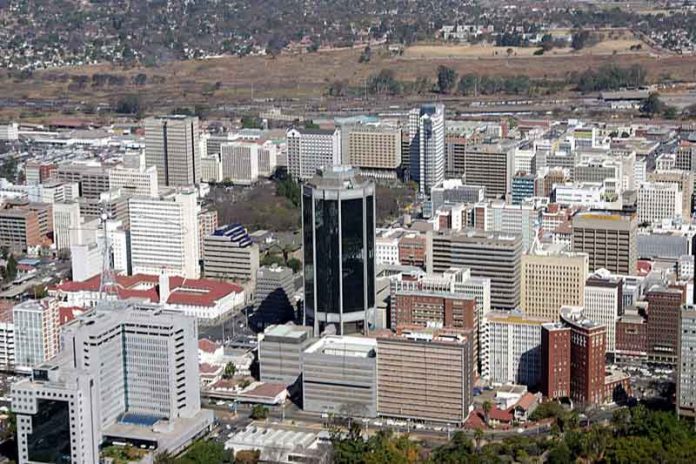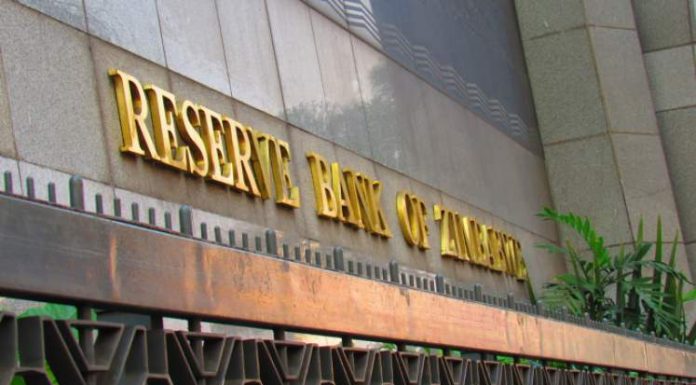Simba Rushwaya
The African Development Bank has predicted a dramatic and strong economic recovery for Zimbabwe in 2021 in the aftermath of the ravaging effects of the Coronavirus (Covid-19) pandemic in the bank’s supplement to the 2020 African Economic Outlook.
The recovery, according to the AfDB, will be anchored on Zimbabwe’s vast natural resources, public infrastructure and skilled labour force.
In a 116-paged report of the impact of Covid-19 on African economies, the bank observed that the continent will suffer setback as millions are set to lose jobs as a result of the pandemic, but Zimbabwe will surprisingly perform “modestly” in 2021.
“Zimbabwe can emerge from the current health and economic crisis strongly. The country’s vast natural resources, public infrastructure in relatively good condition, and skilled labour force give the country an opportunity to join the supply chains in Africa and increase trade within the context of the African Continental Free Trade Area.
“Coupled with policy responses to restore stability in the foreign exchange market and control inflation, the economy could modestly recover in 2021,” the report said.
In its analysis of the health sector in the face of the pandemic, it said Zimbabwe was not prepared when the virus pounced.
The report said: “The outbreak of the pandemic found the country largely unprepared as most health facilities were in dire straits, and the supply of frontline personnel was inadequate, as shown by the low ratio of 1.3 per 1,000 people against 2.3 recommended by the World Health Organization.
“Despite the challenges, isolation centers were designated in major cities, testing has been carried out, and frontline medical staff provided with adequate personal protective equipment.”
But the report also painted general decline in the performance of the economy triggered by Covid-19.
“GDP growth was expected to reach 4.6% in 2020 and 5.6% in 2021 if real corrective measures were taken to stabilize foreign exchange supply and avoid excessive money creation. Recovery was expected in agriculture and mining, backed by increased and well-targeted investment.
“But production is now expected to fall in both sectors, largely due to the outbreak of the pandemic and associated shocks and policy actions to limit the infections. And reductions in tourism earnings will exacerbate foreign exchange shortages.
“As a result, the economy is projected in 2020 to contract by between 7.5 percent if the pandemic subsides by July (baseline) and 8.5 percent if it continues through December (worst case), with modest recoveries in 2021,” said the report.
The fiscal deficit is expected to remain above five percent due to the negative effects of the tax relief measures and weak business activity.
“The Zimbabwe Revenue Authority has reported that the COVID-19 pandemic has greatly affected revenue collection with targeted revenues likely to be missed. In April 2020 (the first month of the lockdown), its revenues were about 6.9% below their target for the period, a trend that is expected to continue.
“Inflation is therefore projected to average 217% in 2020 (worst-case scenario), amplified by the COVID–19 induced shocks. Since the unpegging of the exchange rate from the US dollar in February 2019, the exchange rate depreciated from Z$2.5 to Z$25 (over $70 in parallel market) per US dollar in May 2020.
“The deterioration of the trade balance and secondary income account will push the current account to a deficit territory of 2.0% of GDP in 2020 (baseline) which could widen further to 2.7% (worst case), wiping out a surplus of 1.1% posted in 2019.”
Zimbabwe is not the only African country to be affected by the pandemic, but other African countries as the report projects jobs bloodbath on the continent.
“Africa is projected to contract by 1.7 percent in 2020. If those measures continue beyond the first half of 2020, there could be a deeper GDP contraction in 2020 of 3.4 percent. Cumulatively, GDP losses could range between $173.1 billion and $237 billion in 2020–21.
“Moreover, with a 1.7 percent GDP contraction, employment is projected to decline by 24.6 million jobs in 2020, and with a 3.4 percent GDP contraction, up to 30 million jobs could be lost. The brunt will be mostly felt by those in the informal sector, who account for more than half of the employed.”
The report also predicted that the number of extreme poor in Africa was projected to reach 425.2 million in 2020 with no outbreak, but COVID–19 could increase that by 28 million with a 1.7 percent contraction in GDP and by 37.5 million with a 3.4 percent contraction.
Next year, the numbers would increase respectively by 34 million and 49.2 million as GDP growth continues to fall below population growth, it concluded.














